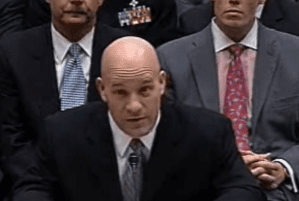
FEMA Requests Immunity From Toxic Trailer Lawsuits. According to a recent Associated Press (AP) report, the Federal Emergency Management Agency (FEMA) is requesting immunity from lawsuits filed on behalf of Gulf Coast hurricane victims who claim they were exposed to formaldehyde fumes while living in Toxic FEMA Trailers. Immediately following the Gulf Coast devastation, FEMA ordered […]

FEMA Requests Immunity From Toxic Trailer Lawsuits. According to a recent Associated Press (AP) report, the Federal Emergency Management Agency (FEMA) is requesting immunity from lawsuits filed on behalf of Gulf Coast hurricane victims who claim they were exposed to formaldehyde fumes while living in Toxic FEMA Trailers.
Immediately following the Gulf Coast devastation, FEMA ordered about $2.7 billion worth of trailers and mobile homes to house victims. FEMA’s requirements were detailed in a mere 25 lines, with minimal information regarding occupant safety. Today, industry and government experts say this is linked to a public health catastrophe involving 300,000 people–many of whom are children—who lived in FEMA homes and were exposed to high formaldehyde levels exceeding the Centers for Disease Control and Prevention’s (CDC) recommended 15-minute exposure limit for workers, the limit at which acute health symptoms begin to appear in sensitive individuals. “I still can’t believe that we bought a billion dollars’ worth of product with a 25-line spec. There’s not much you can do in 25 lines to protect life safety,” said Joseph Hagerman, a Federation of American Scientists expert spearheading a $275 million effort, funded by the Department of Homeland Security, to develop new emergency housing. FEMA has also been criticized for not responding sooner when it received reports of problems.
Meanwhile, U.S. District Judge Kurt Engelhardt is scheduled today to hear FEMA’s bid to be dismissed from a “series of consolidated cases” filed against the federal government and the companies that supplied FEMA with the trailers, according to the AP. FEMA’s attorneys claim it is “entitled to immunity from such claims challenging its response to disasters such as Katrina.” Victims’ lawyers accuse FEMA of negligence for sheltering victims in trailers with elevated formaldehyde levels.
Formaldehyde is an industrial chemical that can cause nasal cancer, may be linked to leukemia, and worsens asthma and respiratory problems. Within months of moving into the trailers, residents began complaining about unusual sickness; breathing problems; burning eyes, noses and throats, and even death. Formaldehyde was found to be emitting from the trailers’ particleboard. Emissions are greatest in warm weather and when trailers are newly constructed.
FEMA lawyers claim it spent over $2.5 billion to purchase over 140,000 new trailers from recreational vehicle dealers and trailer manufacturers, saying it relied on manufacturers to furnish the agency with a “safe, habitable, functional product.” “It is well-established that the (government) is only liable in such situations if it supervised and directed day-to-day activities of its contractors, which did not occur in this case,” they argued in the court papers, according to the AP which added “that the government’s lawyers wrote that a review of legislative history left ‘no doubt’ that Congress intended to enact a broad bar against any such claims arising from disaster relief actions.”
A lead lawyer for the plaintiffs said FEMA and the trailer manufacturers “worked hand in hand” and should share legal liability in the cases. “FEMA is right to blame the manufacturers for the production of the toxic trailers, but the agency is not without culpability or legal liability for this debacle,” he added.
The personal injury attorneys at Parker Waichman LLP offer free, no-obligation case evaluations. For more information, fill out our online contact form or call 1-800-YOURLAWYER (1-800-968-7529).


